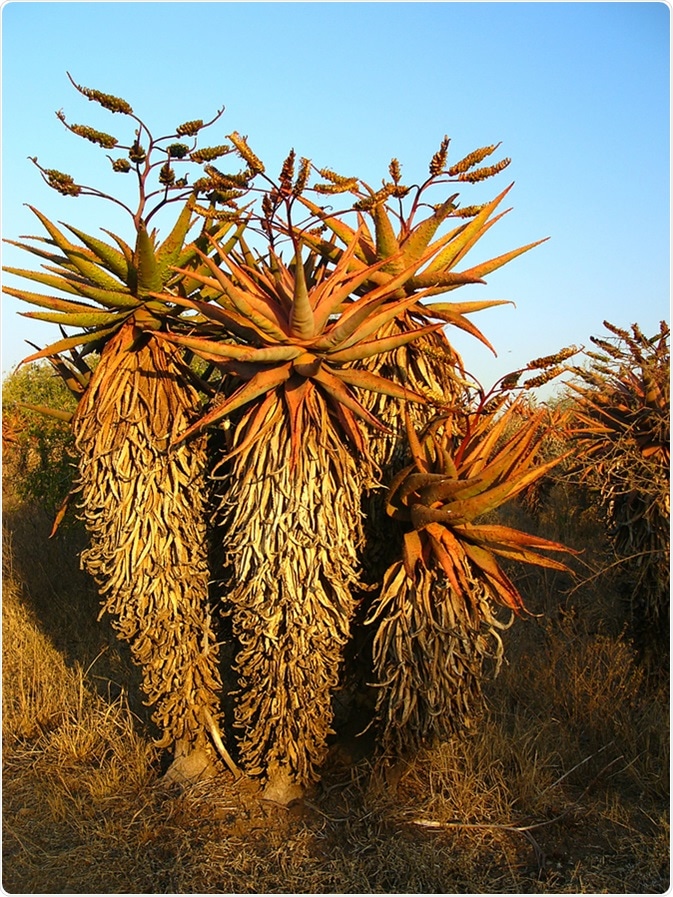Pharmacognosy is the study of medicines or crude drugs produced from natural sources such as plants, microbes, and animals. It includes analysis of their biological, chemical, biochemical, and physical properties.
It is believed that the human body finds plant-derived medicines easier to accept due to the fact that they exist in nature and are not synthetic. About 25% of prescription medicines in the USA are believed to have an active ingredient from a natural source. In developing countries, it’s estimated that about 80% of their populations rely on traditional medicines made from plants and herbs.
Plants and organisms are used in a variety of ways in the production of conventional and alternative medicines. The beneficial active ingredient of the plant may be found anywhere in its physical structure, such as in the petal or stem of a flower.
The natural product might be inert in its usual physical form, so it may take a chemical reaction or modification to bring it into its active form. At times, the active ingredient is extracted directly from the plant, but on other occasions the active ingredient can be produced via synthesis by creating a compound that behaves similarly to the plant extract.
Examples of Medicinal Plants
Plants are the source of many active ingredients used for medicinal purposes. Examples include salicylic acid and caffeine, among others. These natural compounds are often provide a great basis for the discovery of new drugs.
Some examples of plants that have an effect on humans include:
- Fusarium pallidoroseum: the origin of apicidin, a fungal metabolite presenting antiprotozoal activity in vitro that may counter malaria factor Plasmodium berghei
- Taxus Baccata (yew tree): this can be used to extract Baccatin III, which is important in the production of some antineoplastic (anticancer) drugs
- Hericium erinaceus (lion’s mane mushroom): a fungus that shows some evidence of improving nerve and cognitive function, as well as protecting the mucus membrane layer of the stomach and improving symptoms of stomach ulcers. It is taken for Alzheimer’s disease, dementia, depression, anxiety, Parkinson’s disease and multiple sclerosis, although evidence on its efficacy for these conditions is limited
- Catharanthus roseus (Madagascar periwinkle): a natural source of over 70 different indole alkaloids and having been found to suppress the metaphase of cellular mitosis, catharanthus roseus was the origin of medicines for childhood leukaemia and Hodgkin’s disease
- Aloe marlothii (mountain aloe): identified as a treatment for intestinal parasites
- Rumex acetosella (common sorrel): possesses diuretic properties and is used as an approach for sinusitis (inflammation of the nasal passages), bronchitis (inflammation of the bronchial tube lining) and cancer. Evidence for the efficacy of sorrel concerning cancer and bronchitis is limited.

Aloes marlothii. Image Credit: Elzbieta Sekowska / Shutterstock
History of Pharmacognosy
Humans have produced medicine from plants and other organisms for centuries, hence pharmacognosy being commonly considered the oldest brand of pharmacy. There is 5000-year-old evidence of medicine production on Sumerian clay from Nagpur, and around 12 ancient medicinal recipes have been found with plant ingredients such as poppy and mandrake, which is a Mediterranean plant in the nightshade family.
The production of drugs from plants is also referenced in many ancient texts. Through the ages, information has been discovered which refers to humans making medicines from garlic, mustard, cabbage, parsley, and mint.
No one country or nation dominated medicine production using plants and organisms; the practice was carried out globally. Ingredients would vary based on what was readily available to people in their environment.
The extraction of alkaloids from poppy and other plants contributed to the beginnings of modern medicine in the 19th century. From that point, other active ingredients were extracted from other plants to produce medications we have now.
Pharmacognosy Today
Pharmacognosy is still a relevant science for the discovery of future medicines, with Japan and the USA very active in the field. Researchers are encouraged to be mindful of the ethical issues with using natural products as medicines.
For example, consideration has to be given to conservation of different plants to make sure that specific plants and organisms are not put at risk. Additionally, there must be high standards of quality control to ensure plants used for medicinal purposes are correctly identified and any drugs derived from them are of sufficient purity to be safe for use. It is suggested that periods of review are put in place to properly identify risks of long-term use of natural medicines and assess their toxicity. Medicines derived from natural sources are also often prescribed or administered by people outside of medical or pharmaceutical organizations, meaning advice given may not always be accurate or safe.
Further Reading
Last Updated: Dec 30, 2022